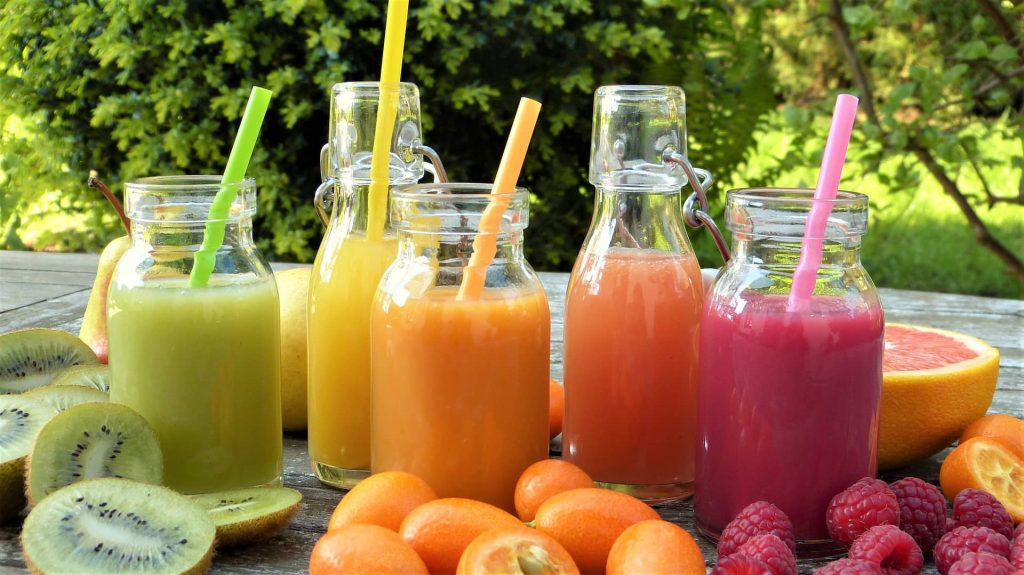Written by Kathy Feng

Image by silviarita from Pixabay
“Reboot, purify, detox, reset, and revitalize” [2]. These names were all too alluring to one journalist, Mary MacVean, who tried the growing juice cleanse fad.
But what exactly is a juice cleanse? While on a juice cleanse, a person undergoing the cleanse/fast restricts their diet to solely drinking juices and water. There may be six to eight different kinds of juice that a person should drink consistently each day. Depending on the cleanse program, a person may choose a cleanse that offers more vegetable juices than fruit juices. Shops such as Pressed Juicery that offer juice cleanses claim that this is a great “way of boosting nutrition and getting back to healthy basics” [1]. To maximize a juice cleanse, stores such as Project Juice recommend laying off the caffeine, drinking more water, and leaning off meat before starting the cleanse.
However, the important question is: Do these juice cleanses actually work? They can be a quick source of nutrients and hydration because the juice is essentially only made from fruits, vegetables, and in some juice programs, nuts. Juice cleanses also initially fulfill their promise of providing weight loss, because a person on the cleanse will be lowering their fat intake as well as the daily caloric intake. The effectiveness of the weight loss can be a gamble. The weight can come back within a few days after the cleanse is over or the cleanse may help a person realize to “reduce [their] independence on unhealthy, processed foods” [2]. Although juice cleanses do provide a quick source to nutrients, they also leave out a lot of necessary nutrients like fiber, which gives the feeling of fullness. The lack of fiber also results in the body’s ability to “absorb fructose sugar more easily, which can affect blood sugar levels” [3]. With this being said, people with kidney disease should not go on a juice cleanse. Another factor is that a juice cleanse is not cheap. A day of cleansing can cost around fifty dollars, while a three-day cleanse can cost around one hundred and twenty dollars.
So, what is the conclusion to juice cleansing? A day or two of juice cleansing certainly won’t drastically change your body in the long run, but it can show you that you can resist grabbing an unhealthy snack and opt for eating a fruit or vegetable alternative instead. If you want more nutrients in your body, then a great alternative to juice cleansing is simply incorporating more fruits and vegetables into your diet instead! Skip out on juice fasting; they may cause your blood sugar levels to spike and a drastic change in diet which may temporarily slow down metabolism. However, this doesn’t mean that juice isn’t good for you! For all the busy bodies out there, juice is a quick, easy, and portable way to get access to nutrients found in fruit and vegetables.
References:
1. “How It Works.” What Is Pressed Juice-How It Works. Pressed Juicery, n.d. Web. 20 Oct. 2016.
2. MacVean, Mary. “Health Experts Throw Cold Water on Juice Cleanse.” Los Angeles Times, 29 Jan. 2015. Web. 20 Oct. 2016.
3. Valliant, Melissa. “Do Juice Cleanses Even Work? 10 Truths About The Fad.” The Huffington Post. N.p., 22 Mar. 2012. Web. 20 Oct. 2016.